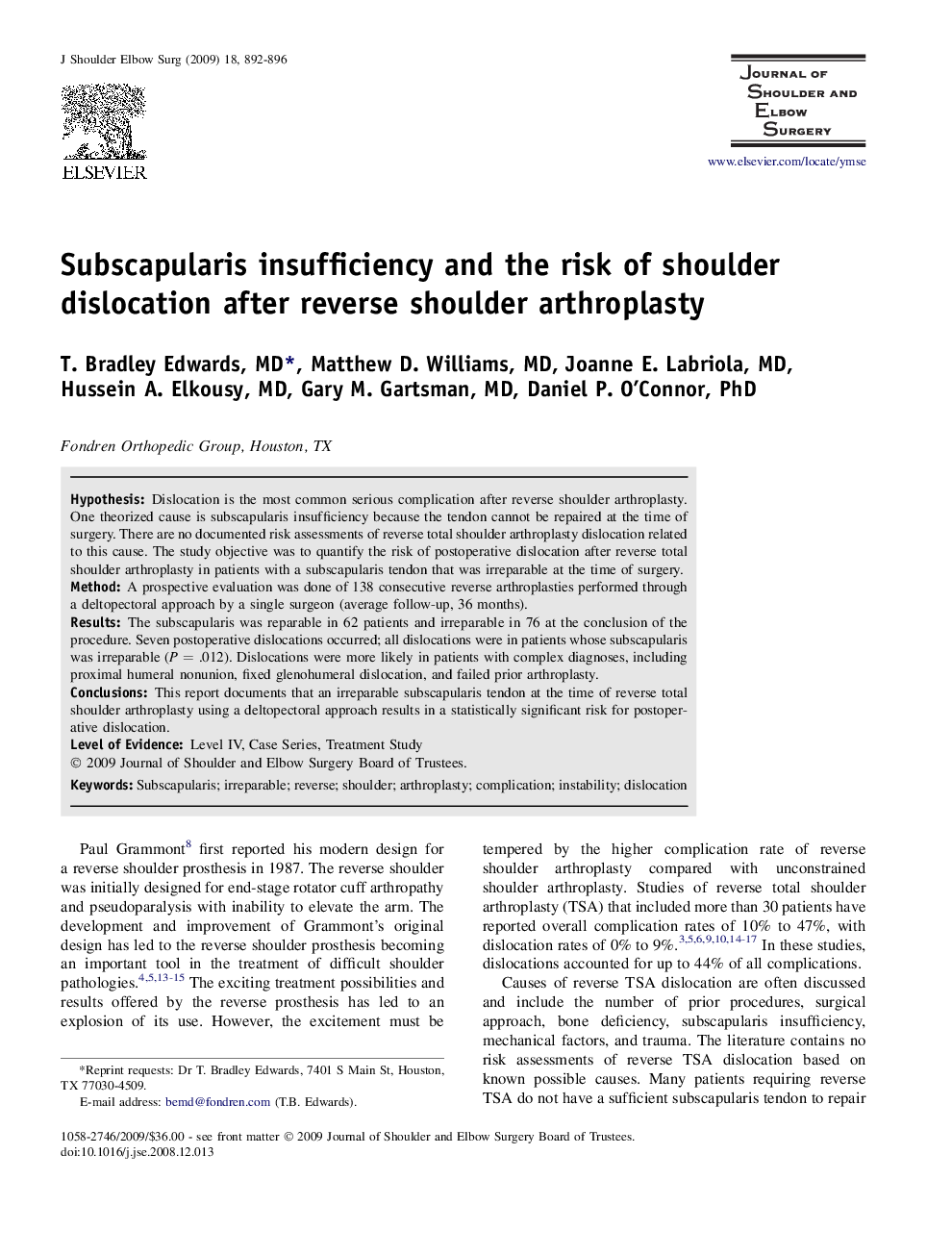| Article ID | Journal | Published Year | Pages | File Type |
|---|---|---|---|---|
| 4075090 | Journal of Shoulder and Elbow Surgery | 2009 | 5 Pages |
HypothesisDislocation is the most common serious complication after reverse shoulder arthroplasty. One theorized cause is subscapularis insufficiency because the tendon cannot be repaired at the time of surgery. There are no documented risk assessments of reverse total shoulder arthroplasty dislocation related to this cause. The study objective was to quantify the risk of postoperative dislocation after reverse total shoulder arthroplasty in patients with a subscapularis tendon that was irreparable at the time of surgery.MethodA prospective evaluation was done of 138 consecutive reverse arthroplasties performed through a deltopectoral approach by a single surgeon (average follow-up, 36 months).ResultsThe subscapularis was reparable in 62 patients and irreparable in 76 at the conclusion of the procedure. Seven postoperative dislocations occurred; all dislocations were in patients whose subscapularis was irreparable (P = .012). Dislocations were more likely in patients with complex diagnoses, including proximal humeral nonunion, fixed glenohumeral dislocation, and failed prior arthroplasty.ConclusionsThis report documents that an irreparable subscapularis tendon at the time of reverse total shoulder arthroplasty using a deltopectoral approach results in a statistically significant risk for postoperative dislocation.Level of EvidenceLevel IV, Case Series, Treatment Study.
